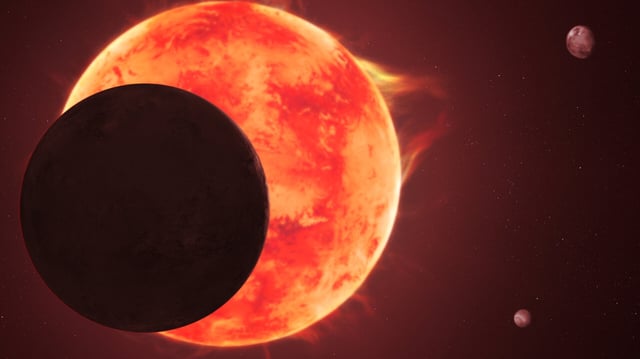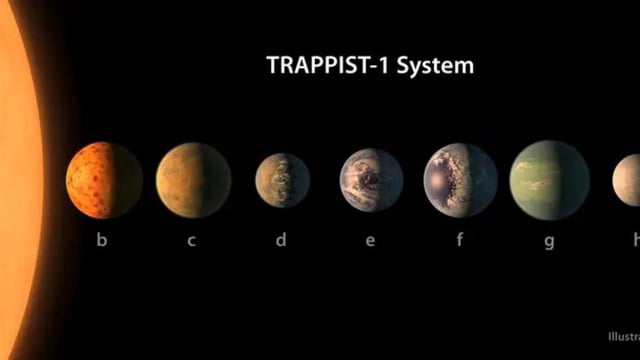Overview
- NIRSpec/PRISM data from two transits showed a flat spectrum within ±100–150 ppm after correcting for 500–1,000 ppm stellar contamination slopes.
- The flat spectrum allows rejection of clear hydrogen-rich envelopes and, with over 95% confidence, atmospheres analogous to Titan, cloud-free Venus, early Mars, Archean Earth or modern Earth.
- Active red dwarf flares likely strip close-in atmospheres, meaning any remaining envelope on TRAPPIST-1 d would be extremely thin or hidden by high-altitude aerosols.
- Combined with earlier non-detections on TRAPPIST-1 b and c, these results indicate the three innermost planets lack detectable atmospheres.
- Attention now turns to the colder outer planets (e, f, g, h), where atmospheric retention may be possible despite observational challenges.

